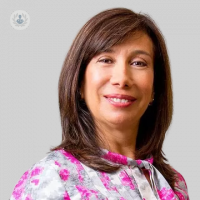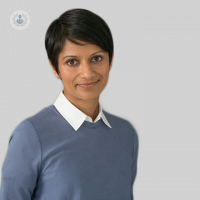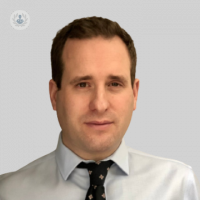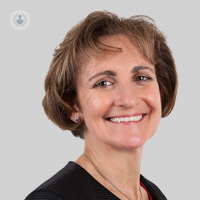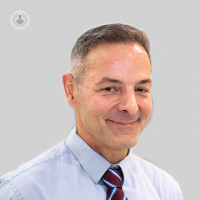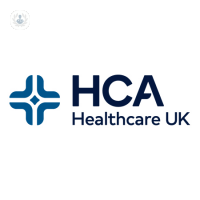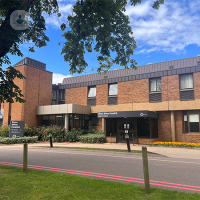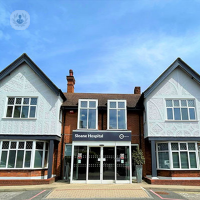What is acne?
Acne, otherwise known as acne vulgaris is a very common skin condition, usually featuring blackhead and whitehead spots, which happens when hair follicles and pores become blocked by oil and dead skin cells.
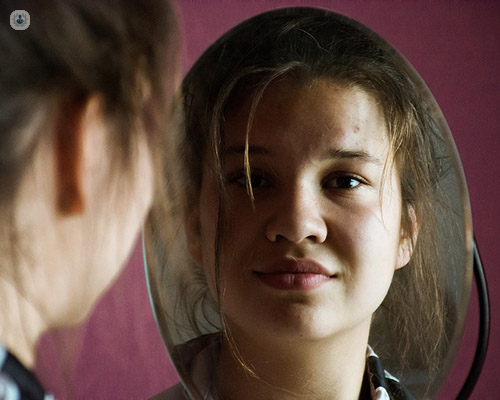
What are the different types of acne?
The six main types of acne are as follows:
- Blackheads – Small, black or brown spots that are caused when the open pore is clogged with oil which turns brown due to pigmentation in the follicle.
- Whiteheads – These are similar to blackheads, but are white in colour due to being filled with pus. In these cases, the pore is blocked and won’t pop when they are squeezed.
- Papules – These appear as small, red bumps, and may be sore to the touch.
- Pustules – these are the same as papules, but are further developed with a white tip at the centre caused by the build-up of pus.
- Nodules – These exist under the skin, rather than on the surface and appear as large painful lumps.
- Cysts – These are the most severe, and look similar to boils. They appear as large pus-filled lumps and carry the greatest risk of scarring.
What are the causes of acne?
Acne is usually linked with hormonal changes that occur during puberty, though it can start at any age. When testosterone hormones become active during puberty in both males and females, the sebaceous glands (those that produce the sebum oil that is secreted onto the skin) become oversensitive and produce excessive amounts of oil. The excess oil, combined with bacteria on the skin and dead skin cells not being shed properly, can cause hair follicles and pores to become blocked.
The bacteria that normally lives on the skin without any problems, then begins to multiply which causes inflammation and the creation of pus-filled spots. Acne can also be hereditary, meaning that if one or both of your parents had acne, it’s more likely that you will have it. There is no evidence that diet or poor hygiene cause acne.
How can acne be prevented?
It may not be possible to prevent acne, but you may be able to reduce the affects. Avoid squeezing the spots or clearing out the blackheads as this can lead to scarring and make the spots worse.
Don’t wash the areas affected by acne too frequently, as it can irritate the skin and make the condition worse, when the area is washed, use lukewarm water, as water that is too hot or cold can make the acne worse. Finally, always make sure you shower after exercise, and remove makeup before bed, to ensure that your pores remain unblocked.
How is acne treated?
The symptoms of acne can be treated effectively in a variety of different ways. You may be able to get over-the-counter creams from the pharmacy that can help with the symptoms. Your consultant dermatologist will be able to prescribe treatments that are unavailable over the counter, such as certain laser acne treatments to help reduce the appearance of acne scars.
11-13-2012 11-10-2023Acne
Dr Emilia Duarte Williamson - Dermatology
Created on: 11-13-2012
Updated on: 11-10-2023
Edited by: Conor Lynch
What is acne?
Acne, otherwise known as acne vulgaris is a very common skin condition, usually featuring blackhead and whitehead spots, which happens when hair follicles and pores become blocked by oil and dead skin cells.

What are the different types of acne?
The six main types of acne are as follows:
- Blackheads – Small, black or brown spots that are caused when the open pore is clogged with oil which turns brown due to pigmentation in the follicle.
- Whiteheads – These are similar to blackheads, but are white in colour due to being filled with pus. In these cases, the pore is blocked and won’t pop when they are squeezed.
- Papules – These appear as small, red bumps, and may be sore to the touch.
- Pustules – these are the same as papules, but are further developed with a white tip at the centre caused by the build-up of pus.
- Nodules – These exist under the skin, rather than on the surface and appear as large painful lumps.
- Cysts – These are the most severe, and look similar to boils. They appear as large pus-filled lumps and carry the greatest risk of scarring.
What are the causes of acne?
Acne is usually linked with hormonal changes that occur during puberty, though it can start at any age. When testosterone hormones become active during puberty in both males and females, the sebaceous glands (those that produce the sebum oil that is secreted onto the skin) become oversensitive and produce excessive amounts of oil. The excess oil, combined with bacteria on the skin and dead skin cells not being shed properly, can cause hair follicles and pores to become blocked.
The bacteria that normally lives on the skin without any problems, then begins to multiply which causes inflammation and the creation of pus-filled spots. Acne can also be hereditary, meaning that if one or both of your parents had acne, it’s more likely that you will have it. There is no evidence that diet or poor hygiene cause acne.
How can acne be prevented?
It may not be possible to prevent acne, but you may be able to reduce the affects. Avoid squeezing the spots or clearing out the blackheads as this can lead to scarring and make the spots worse.
Don’t wash the areas affected by acne too frequently, as it can irritate the skin and make the condition worse, when the area is washed, use lukewarm water, as water that is too hot or cold can make the acne worse. Finally, always make sure you shower after exercise, and remove makeup before bed, to ensure that your pores remain unblocked.
How is acne treated?
The symptoms of acne can be treated effectively in a variety of different ways. You may be able to get over-the-counter creams from the pharmacy that can help with the symptoms. Your consultant dermatologist will be able to prescribe treatments that are unavailable over the counter, such as certain laser acne treatments to help reduce the appearance of acne scars.
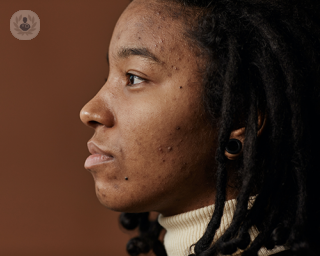

Ask an expert: should acne be treated with antibiotics?
By Dr Íñigo de Felipe
2025-01-15
Dermatologists sometimes prescribe antibiotics to kill bacteria and treat severe breakouts caused by acne. Antibiotic use has become increasingly discouraged in recent years, however, due to their severe side effects. Dr Íñigo De Felipe, leading consultant dermatologist, explains where the issue lies and how to address it. See more


All you need to know about acne treatments
By Dr Christopher Heaton
2025-01-14
Acne can be an embarrassing condition, but fortunately it is treatable. The scars, however, can remain. We take a look at what treatments are available. See more
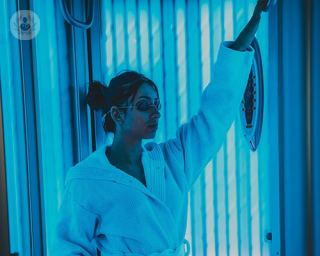

Acne and sunbed use: what’s the connection?
By Dr Simon Zokaie
2025-01-14
With a widespread impact on millions globally, acne, a prevalent skin condition, frequently motivates individuals to explore a multitude of potential remedies. From creams, lotions, medications, and therapies to lifestyle adjustments, several treatments have proven effective in addressing the condition. One emerging method gaining popularity is the use of sunbeds to alleviate acne. However, before making any changes, it’s critical to it's important to distinguish between what's true and what isn’t. Distinguished cosmetic dermatologist Dr Simon Zokaie explores the link between acne and sunbed use. See more


How to treat acne scars
By Dr Hiba Injibar
2025-01-14
When experiencing acne, it can feel like a struggle to feel good about ourselves. Luckily, with the help of Dr Hiba Injibar, the effects of acne on both our skin and mental health can be minimised. With her impressive repertoire in dermatology, Dr Injibar offers comprehensive care for treating the root cause of acne and also the more persistent symptoms that include scarring. Find out how acne scarring can be avoided, why it sometimes occurs, and what the treatment options are for smoother skin, in this latest Q&A. See more
Experts in Acne
-
Dr Saqib Jawaid Bashir
DermatologyExpert in:
- Mohs surgery
- Cosmetic dermatology
- Laser
- Skin cancer
- Scars
- Acne
-
Dr Gayathri Perera
DermatologyExpert in:
- Skin cancer
- Acne
- Rosacea
- Paediatric dermatology
- Psoriasis
- Autoimmune diseases
-
Dr Ben Esdaile
DermatologyExpert in:
- Psoriasis
- Acne
- Skin cancer
- Paediatric dermatology
- Nail diseases
- Dermoscopy
-
Dr Hélène Menagé
DermatologyExpert in:
- Skin allergies
- Acne
- Photodynamic therapy
- Sun allergy
- Skin cancer
- Eczema
-
- See all

The Portland Hospital - part of HCA Healthcare
The Portland Hospital - part of HCA Healthcare
205 - 209 Great Portland St. W1W 5AH
No existe teléfono en el centro.
By using the telephone number provided by TOP DOCTORS, you automatically agree to let us use your phone number for statistical and commercial purposes. For further information, read our Privacy Policy
Top Doctors

Three Shires Hospital - part of Circle Health Group
Three Shires Hospital - part of Circle Health Group
The Avenue, Northampton NN1 5DR
No existe teléfono en el centro.
By using the telephone number provided by TOP DOCTORS, you automatically agree to let us use your phone number for statistical and commercial purposes. For further information, read our Privacy Policy
Top Doctors

The Sloane Hospital - part of Circle Health Group
The Sloane Hospital - part of Circle Health Group
125 Albemarle Rd, Beckenham BR3 5HS
No existe teléfono en el centro.
By using the telephone number provided by TOP DOCTORS, you automatically agree to let us use your phone number for statistical and commercial purposes. For further information, read our Privacy Policy
Top Doctors
-
The Portland Hospital - part of HCA Healthcare
205 - 209 Great Portland St. W1W 5AH, Central LondonExpert in:
- Neurological spinal surgery
- Orthopaedic spinal surgery
- Maternity care
- Pregnancy
- Scoliosis
- In vitro fertilisation (IVF)
-
Three Shires Hospital - part of Circle Health Group
The Avenue, Northampton NN1 5DR, NorthamptonExpert in:
- Abdominal ultrasound
- Abdominoplasty
- Acne
- Allergies nose and ears
- Allergy
- Voice disorders
-
The Sloane Hospital - part of Circle Health Group
125 Albemarle Rd, Beckenham BR3 5HS , South LondonExpert in:
- Abdominal ultrasound
- Vascular Surgery
- Cardiology
- Colorectal surgery
- Endocrine Surgery
- General Surgery
- See all
- Most viewed diseases, medical tests, and treatments
- Narcolepsy
- Snoring
- Polysomnography (sleep study)
- Immunotherapy
- Alzheimer's disease
- Cluster headaches
- Tension headache
- Chronic headache
- Facial feminisation surgery
- Hormone therapy
